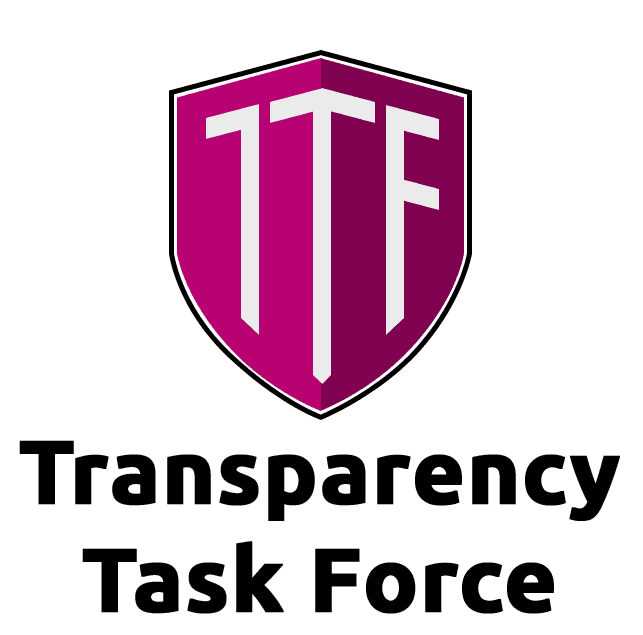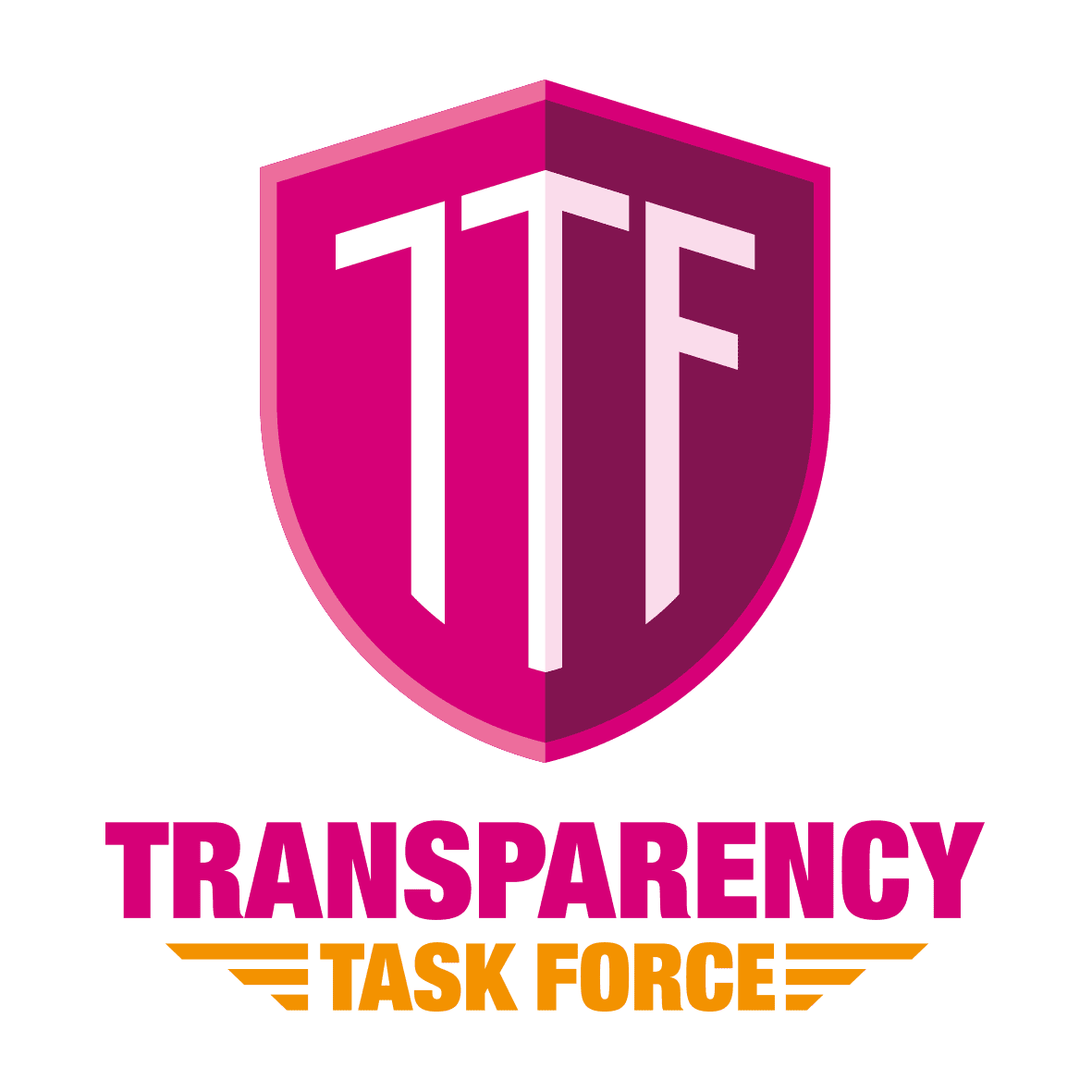Online symposium using interactive Zoom;
taking place on Wednesday, May 6th from 9:00am until 1:00pm, UK time







Kindly sponsored by



Executive summary
Of all the events we have run over the last 5 years, this is the most important.
It is taking place on the 5th birthday of the Transparency Task Force, the collaborative, campaigning community dedicated to driving positive, progressive and purposeful finance reform; an organisation that began as a result of the response to a meeting held at Senate House, London University, on May 6th, 2015.
Since then we have grown to a community of over 1,600 people across the world, developed 12 Groups, initiated the launch of mini TTF Chapters around the world and done much much more.
Our single greatest achievement to date has been to initiate and facilitate a global conversation about what is needed to fix what is wrong with financial services. That has led us to produce a book, being launched at this symposium, 5 years to the day that the Transparency Task Force came into existence.
Please do all you can to be with us today…
This event will be of particular interest to individuals and organisations that authentically align with the idea that the financial services sector needs to be trustworthy and want to be involved with our international efforts to help rebuild trustworthiness and confidence in Financial Services.
Unfortunately, there is a mountain of independent research, such as the Edelman Trust Barometer, showing that the public do not trust financial services; and therefore do not have confidence in it. That’s a serious and systemic problem for a sector that needs to be trusted to function successfully.
There are many reasons for this sorry state of affairs, and a particularly significant reason is that the financial services seems to have failed to grasp the very strong correlation between transparency, truthfulness and trustworthiness.

More about “The book that is much more than just a book”
Here’s the Foreword, that we are very proud to have been written by Dr. Kara Tan Bhala
FOREWORD
Dr. Kara Tan Bhala
This book contains the well-ordered thoughts of a multiplicity of impressive minds and extensive experiences. Despite the variety of voices, each and every author focuses on one purpose: to enhance the financial services industry from its current unsatisfactory state. When I say the financial services industry is in an unsatisfactory state, I mean to say several elements of the industry are in ethical disarray and in need, for a long time now, of fixing.
The overarching general solution to this core problem and its various manifestations is greater transparency in all aspects of the business. Hence, the mission of the Transparency Task Force is to use the power of transparency to reform financial services, to the result that these services serve people better. The Transparency Task Force prudently identifies 12 areas in finance that require higher levels of transparency and improvement and considers them the drivers of change. These areas range from “Cultural Reform” and “Technology”, to “Responsible Reward” and “Better Risk Management.” Together, these 12 areas comprise the Financial Development Goals that lead to the rebuilding of trustworthiness and confidence in financial services. Not coincidentally, ethics informs and animates all these 12 drivers of change. And so, finally, it should.
There is no over dramatization to propose that in order to make finance better, it is necessary to change the very philosophical foundations on which the discipline is based. Since the middle of the twentieth century, there has been a Friedmanite insistence in neo-liberal economics and its stepchild, finance, which, in its quantitative dimension only, is all the rage in business schools, on the primacy of profit maximization. A profit maximizing corporation simply has to operate within the law and not break the rules of the game. In all other instances, the corporation makes no normative judgments. This world view sees finance as independent of any particular ethical position. Instead, the market fully and effectively occupies the space of ethics judgements.
But we have observed time and again the existence of market failures – the Great Financial Crisis is an outstanding example. Ironically, the theory that claims to be ethics free is itself propelled by an ethic: profit maximization. Remarkably, the disciples of the theory are seemingly blind to the reality that at the heart of every financial crisis is an ethical lapse. To put ethics into its rightful place in finance, the first step is the clear and open enunciation of a purpose of finance.
Purpose, or telos according to Aristotle, is the final cause. The reason we do what we do. A noble purpose is more likely to engender good acts, although it does not guarantee every act is good. Aristotle gives a highly relevant example, especially in this Time of Pandemic, by stating the purpose of the medical profession is to help people be healthy. Regrettably, where finance has fallen over the past half century or so is its gradual abandonment of an acknowledged purpose that entails the notion of helping people. Making efficiency the goal of financial activity has led to the collective unconscious equating finance almost exclusively with money, neglecting the connecting link: people. Needless to say, I am in complete agreement with all of the 12 Financial Development Goals in this book, especially that of instilling “Greater Purposefulness” in financial services.
Since the Great Financial Crisis of 2008, the financial services industry has lost the trust and confidence of a public now weary with regular crises in the world, from stock market crashes to terrorist attacks, and now pandemics. People simply want their financial services to work for them, they want a finance that serves people, rather than exploits people. Let’s face it. In the Time of Pandemic, the healthcare services industry has shown that its practitioners serve people and put human lives first, even sometimes at great risk to themselves. Conversely, in the Time of (and after) the Great Financial Crisis, the financial services industry has shown it serves itself and puts profits first. The contrast cannot be more jarring.
To say this book is indispensable at this moment of financial history, is not hyperbole meant for mere marketing and public relations. It is a truth based on empirical evidence. I would like to thank the contributors for their work, dedication, and passion to drive positive change in the financial services industry. Ultimately, this book is their clarion call, to all who care, to become active participants in the process of much needed progress. Please read, and re-read, their thought-provoking contributions, and tell everyone you know to do the same. These change agents firmly believe that “finance is meant to serve people; people are not meant to serve finance.”
All places need to be booked in advance, please
To secure your place, please first click on the button below, then read the notes that explain the 4 ticket options (Standard, For TTF Fellows, Discounted and Press Pass) and then book your place.
Once your place is secured, we will Email all the details you need to be able to access the event through interactive Zoom.
For queries, please Email andy.agathangelou@transparencytaskforce.org

What’s the purpose of this symposium?
This symposium represents one more step forward in our collective efforts to galvanise support for positive, progressive and purposeful finance reform, for the benefit of all.
Our event is being run as part of a major international project about creating an over-arching framework for finance reform. At the heart of that framework for finance reform are the 12 Finance Development Goals that we are developing with the input from many members around the world.
The thought leadership within our community has been brought together to produce the book being launched today, entitled:
“Why we must rebuild trustworthiness and confidence in financial services; and how we can do it”
We already know that the financial services sector as a whole has a significant reputation problem – the key takeaway from the Edelman Trust Barometer is:
“…at 57 percent trust among the general population, financial services remain the least-trusted sector measured by the Trust Barometer.”
…and that’s obviously a major issue for a sector that has to be trusted to function successfully.
It is clear that there is far too much adverse publicity about the financial services sector; and that it is having a long-lasting and highly damaging effect on the reputational integrity of the sector.
This is a serious and systemic issue that needs to be resolved.
Our symposium creates a first-class opportunity for a wide range of stakeholders to share their thoughts around what needs to be done; how best to do it and who should take responsibility for fixing what seems to be broken; or at least very badly damaged.
You can expect to be ‘amongst’ progressively minded and collaboratively minded people.
On the basis that “progress begins with realism” we will be facilitating the kind of candid yet constructive discussions that are needed to help move matters forward.
We are expecting this to be a particularly lively symposium because we will be creating a forum for people to “say it as they see it”
We don’t think any one person or organisation has all the answers; and we also think that all answers are worth listening to, so if you’ve got a point of view that you’d like to share, this is definitely an event for you.

Format
We’re in trying times; so, it’s time for agility and adaptability, resilience and innovation.
As a consequence, this symposium is being run as an online event.
We will be using interactive Zoom, a highly effective online platform which means we can run this symposium as an ultra-convenient and wonderfully efficient thought-leadership event for you; all this, without you needing to leave your home or office.
You’ll just need access to a computer with Broadband connection.
We will be structuring the event in such a way that it will be as engaging and as interactive as we can possibly make it. We’ll be working hard to create as “life-like” an event as possible, with every opportunity taken to create interaction and engagement.
There will be several presentations with Q&A sessions; breakout sessions where attendees will be able to discuss particular topics amongst themselves and then report back on their findings; and an open discussion and debate session towards the end.

Here’s the programme and timings, so far*
09:00
Welcome to the symposium, brief introductions and setting the scene, for 20 minutes, by
– Andy Agathangelou FTTF FRSA, Founder, Transparency Task Force; Governor, Pensions Policy Institute; former Founding Chair, Friends of Automatic Enrolment; former Founding Chair, Association of Member Nominated Trustees.
https://www.linkedin.com/in/andy-agathangelou-02953113
09:20
Presentation #1, for 15 minutes + 10 minutes Q&A with facilitated discussion
Aowen Jin FRSA, Artist and Social Commentator
https://en.wikipedia.org/wiki/Aowen_Jin
09:45
Presentation #2, for 15 minutes + 10 minutes Q&A with facilitated discussion
Sander Eijkenduijn, Co-Founder at Scorpio
https://www.linkedin.com/in/sander-eijkenduijn-1108b0167/
and
Jonny Ruck, Co-CEO, at Scorpeo
https://www.linkedin.com/in/jonathan-ruck-24641587/
10:10
Presentation #3, for 10 minutes + 10 minutes Q&A with facilitated discussion
Sue Jaffer, Senior Researcher, Latrobe Law School
https://www.linkedin.com/in/sue-jaffer-b2264b28/
Nicholas Morris, Adjunct Professor, Latrobe Law School
https://www.linkedin.com/in/nicholas-morris-50a60a2/
10:30
Short leg-stretch and comfort break, for 10 minutes
10:40
Breakout & Report Back Session, on “What are the greatest challenges; and how should we tackle them?” for 30 minutes in total
– 20 minutes for discussion within the Breakout Group
and
– 10 minutes for the Report Back session
11:10
Presentation #4, for 10 minutes + 10 minutes Q&A with facilitated discussion
Andy Brown, Founder & Director, Octo Members Group
https://www.linkedin.com/in/andy-brown-86200a2/
and
Lee Robertson, CEO & Co-Founder, Octo Members Group
https://www.linkedin.com/in/leerobertsonwealthmanager/
11:30
Presentation #5, for 10 minutes + 10 minutes Q&A with facilitated discussion
Iwein Borm, Founder, InFinIT Partners
https://www.linkedin.com/in/iwein-borm-3207023/
11:50
Short leg-stretch and comfort break, for 10 minutes
12:00
Presentation #6, for 10 minutes + 10 minutes Q&A with facilitated discussion
Graham Boyd, Founder, EvoluteSix
https://www.linkedin.com/in/grahamboydphd/
12:20
Open discussion & debate, 35 minutes
12:55
Final conclusions; and suggested next steps, by
– Andy Agathangelou FTTF FRSA, Founder, Transparency Task Force; Governor, Pensions Policy Institute; former Founding Chair, Friends of Automatic Enrolment; former Founding Chair, Association of Member Nominated Trustees.
https://www.linkedin.com/in/andy-agathangelou-02953113
13:00
Final close
*The programme will continuously evolve so is subject to change.
All places need to be booked in advance, please
To secure your place, please first click on the button below, then read the notes that explain the 4 ticket options (Standard, For TTF Fellows, Discounted and Press Pass) and then book your place.
Once your place is secured, we will Email all the details you need to be able to access the event through interactive Zoom.
For queries, please Email andy.agathangelou@transparencytaskforce.org



